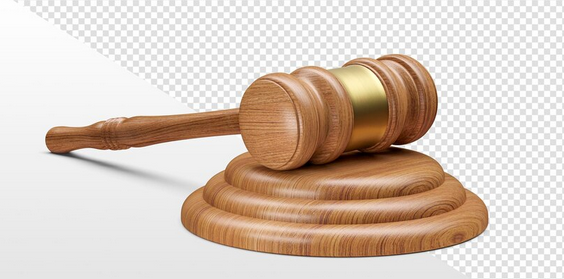
 Court gavel/FREEPIK
Court gavel/FREEPIKThe Court of Appeal has handed a major victory to
the Pumwani Riyadha Mosque Committee and its Registered Trustees in a
long-running legal battle against Gikomba Business Centre Ltd over a disputed
land lease.
The three-judge bench, comprising Justices Kathurima M’Inoti, Lydia Achode and
Weldon Korir, ruled that the High Court lacked jurisdiction to entertain the
dispute and struck out the respondent’s plaint, effectively ending the case in
favour of the mosque.
The case revolved around a 35-year lease
agreement dated September 9, 2015, over Land Reference Number 209/19680.
The respondent, Gikomba Business Centre Ltd, had leased the property from
the mosque trustees to construct and operate the Gikomba Business Centre, a
commercial hub in Nairobi.
However, the mosque committee later terminated the lease, prompting the
respondent to file a suit in the High Court seeking specific performance of the
lease and alleging breach of contract.
In a ruling delivered on December 5, 2024,
High Court Judge Alfred Mabeya had dismissed the mosque committee’s application
to strike out the suit, declaring that the matter was commercial in nature and
therefore within the High Court's jurisdiction.
He also held that the mosque committee had waived its right to arbitration
by actively participating in the proceedings without applying for a stay.
But the Court of Appeal disagreed.
In a judgment delivered on July 11, 2025, the
Court of Appeal ruled that the case belonged in the Environment and Land Court,
not the High Court.
“The dispute herein is one which fell within the jurisdiction of the
Environment and Land Court pursuant to the provisions of Article 162(2)(b) of
the Constitution and section 13(2)(a) of the Environment and Land Court Act,”
the bench concluded.
The appellate judges emphasised that the
dispute involved land use, tenure, and occupation, elements that fall squarely
under the Environment and Land Court’s purview.
“From the plaint, some of the alleged particulars of breach are interfering
with the business operations of the respondent and violation of the terms of
the lease agreement,” they stated.
“The land was therefore being used in the terms contemplated by Article
162(2)(b) of the Constitution.”
Lawyer Nelson Havi, who represented the mosque
committee, welcomed the ruling, terming it a vindication of constitutional
boundaries between courts.
“Specialised courts exist for a purpose, and the High Court cannot expand
its own jurisdiction through judicial craft,” he had argued during submissions.
The Court also addressed the issue of
arbitration.
Although the lease agreement
contained an arbitration clause, the mosque committee had not invoked it when
entering an appearance in the High Court.
This led Justice Mabeya to conclude that they had waived the right to
arbitration.
The Court of Appeal upheld that part of the High Court’s finding, stating
that “the failure to seek a stay of proceedings and for reference at the
appropriate time, coupled with the defendants’ active participation in the
current proceedings, means that the defendants have waived their right to
insist on arbitration at this stage.”
On the claim that Gikomba Business Centre had
concealed material facts, the appellate court found no evidence to support the
allegation.
“There is nothing to support the appellants’ assertion that there was
material non-disclosure,” the ruling read, noting that one of the earlier suits
cited had been withdrawn and another stayed.
Despite not winning on all grounds, the mosque
committee's central argument, that the High Court lacked jurisdiction, was
enough to overturn the lower court’s ruling.
“This appeal succeeds... The ruling by Mabeya, J. is for setting aside,” the
judgment concluded.
“The respondent's plaint dated October 8, 2024, is struck out with costs to
the appellants.”





![[PHOTOS] 2025 World AI Conference kicks off in Shanghai](/_next/image?url=https%3A%2F%2Fcdn.radioafrica.digital%2Fimage%2F2025%2F07%2F38b1de55-b0e8-4648-a113-6284886fbf86.jpg&w=3840&q=100)






